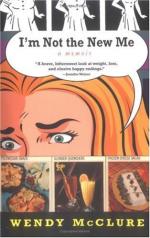“On last Wednesday evening a meeting of all the Whigs then here from all parts of the State was held, and the question of the propriety of conventions was brought up and fully discussed, and at the end of the discussion a resolution recommending the system of conventions to all the Whigs of the State was unanimously adopted. Other resolutions also were passed, all of which will appear in the next ‘Journal.’ The meeting also appointed a committee to draft an address to the people of the State, which address will also appear in the next ‘Journal.’ In it you will find a brief argument in favor of conventions, and, although I wrote it myself, I will say to you that it is conclusive upon the point, and cannot be reasonably answered.
“The right way for you to do is to hold your meeting and appoint delegates anyhow, and if there be any who will not take part, let it be so.
“The matter will work so well this time that even they who now oppose will come in next time. The convention is to be held at Tremont on the fifth of April; and, according to the rule we have adopted, your county is to have two delegates—being double the number of your representation.
“If there be any good Whig who is disposed still to stick out against conventions, get him, at least, to read the argument in their favor in the ‘Address.’"[2]
[Footnote 2: The original of this letter is owned by E.R. Oeltjen of Petersburg, Illinois.]
The “brief argument” which Lincoln thought so conclusive, “if he did write it himself,” justified his good opinion. After its circulation there were few found to “stick out against conventions.” The Whigs of the various counties in the Congressional district met as they had been ordered to do, and chose delegates. John J. Hardin of Jacksonville, Edward D. Baker and Abraham Lincoln of Springfield, were the three candidates for whom these delegates were instructed.
To Lincoln’s keen disappointment, the delegation from Sangamon County was instructed for Baker. A variety of social and personal influences, besides Baker’s popularity, worked against Lincoln. “It would astonish, if not amuse, the older citizens,” wrote Lincoln to a friend, “to learn that I (a stranger, friendless, uneducated, penniless boy, working on a flat-boat at ten dollars per month) have been put down here as the candidate of pride, wealth, and aristocratic family distinction.” He was not only accused of being an aristocrat, he was called “a deist.” He had fought, or been about to fight, a duel. His wife’s relations were Episcopalian and Presbyterian. He and she attended a Presbyterian church. These influences alone could not be said to have defeated him, he wrote, but “they levied a tax of considerable per cent. upon my strength.”




